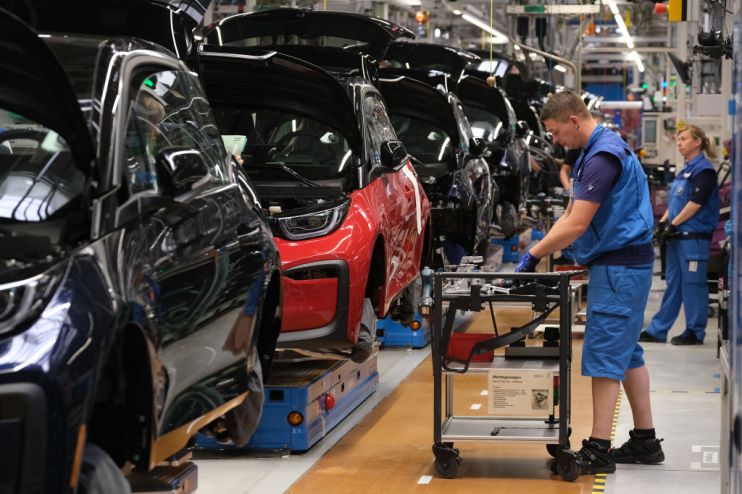Eurozone industrial production continues to decline in April

Industrial production in the Eurozone fell by 0.5 per cent in April month on month as Germany’s manufacturing woes continued, official statistics revealed today.
Read more: Eurozone investors gloomy as trade war continues to rage
In the European Union industrial production fell by 0.7 per cent compared to March, with the UK the biggest faller in a month that saw its car plants undergo planned Brexit-induced shutdowns.
Eurozone manufacturing continued its downward trend after a 0.4 per cent drop in March and a reading of zero in February. German industrial production dropped by 2.3 per cent after 0.6 per cent growth in March.
Last week European Central Bank (ECB) president Mario Draghi said the Eurozone economy was suffering due to “geopolitical factors, the rising threat of protectionism and vulnerabilities in emerging markets”.
In the euro area in April production of durable goods – everything from cars to jewelry – fell by 1.7 per cent compared to a year earlier.
Production of intermediate and capital goods used in manufacturing itself fell by one per cent and 1.4 per cent respectively.
Jack Allen-Reynolds, senior Europe economist at Capital Economics, said: “The early evidence for May suggests that euro-zone industry remained in the doldrums. Business surveys such as the manufacturing PMI are consistent with further annual falls in production.”
He said: “With global economic growth likely to remain weak, industrial production across the currency union looks set to remain sluggish, weighing on the wider economy.”
He added: “We forecast euro-zone GDP to rise by just 0.8 per cent in 2019 and 2020.”
Weak Eurozone growth pushed the ECB to extend its forward guidance on interest rates last week. It said it now does not foresee a hike until at least the middle of 2020.
Read more: Eurozone construction growth slows to lowest level in four months
Draghi said last week: “The uncertainty about global trade growth has extended beyond what we believed in March, and that’s why we have extended our future guidance.”